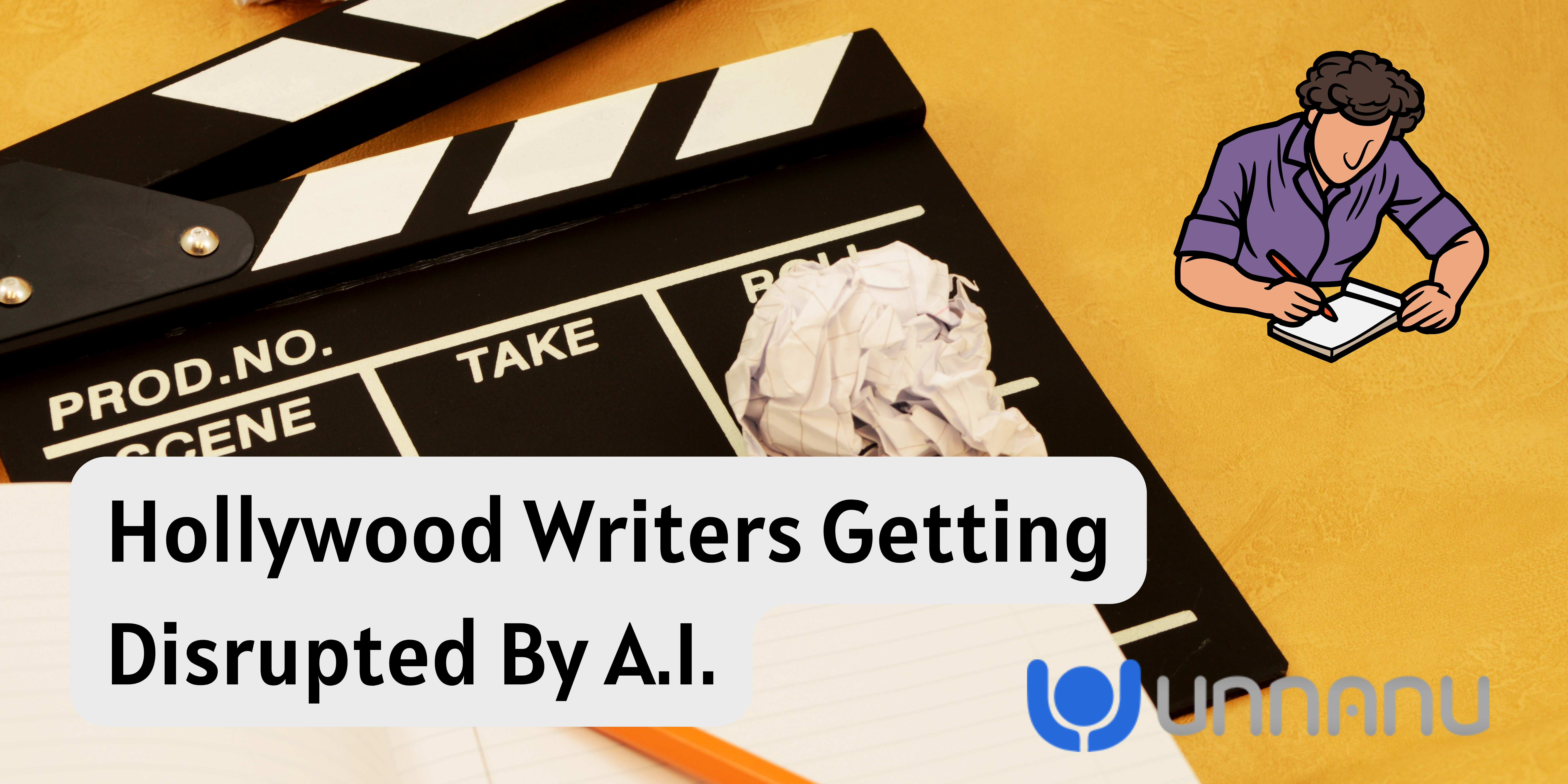Studios Hiring AI Specialists Amid Strike Increases Actor Line Anxiety:
As labor disputes continue to rock the entertainment industry, studios are turning to artificial intelligence (AI) specialists to navigate the uncertain landscape. With picket lines becoming a common sight outside production sets and studios, the need for innovative solutions has become more pressing than ever before. The ongoing standoff between Hollywood’s powerful unions and major studios over issues such as fair pay, working conditions, and benefits has left industry professionals anxious about their future.
As a result, companies like Netflix are taking proactive measures by offering exorbitant salaries of up to 1M to lure top AI writing talent. AI specialists possess the expertise needed to revolutionize various aspects of content creation and distribution. From streamlining workflows and enhancing audience engagement to improving recommendation algorithms and combating piracy, these professionals can offer invaluable insights into transforming the industry.
However, this approach also raises concerns among workers who fear that increased reliance on AI could lead to job losses or diminished creative control.
The Growing Demand For AI Specialists In The Entertainment Industry
The entertainment industry is experiencing a surging demand for AI specialists who can write scripts using promt generation as studios recognize the transformative potential of artificial intelligence. These specialists are being sought after to revolutionize various aspects of the industry, ranging from content creation and recommendation systems to marketing strategies and audience engagement. AI technology has already made significant strides in transforming how movies and TV shows are produced.
With the ability to analyze vast amounts of data, AI can help streamline the pre-production process by identifying potential successes and predicting audience preferences. Additionally, AI-powered algorithms can assist in creating more personalized content recommendations for viewers, enhancing their overall streaming experience. Marketing is another area where AI specialists are playing a vital role. By leveraging machine learning algorithms, studios can better understand their target audience’s preferences and tailor promotional campaigns accordingly.

This enables them to reach a broader customer base and maximize their return on investment. As the demand for AI specialists continues to grow, so does their compensation. Netflix’s recent offer of up to $900,000 salary highlights just how valuable these professionals have become in the entertainment industry.
Netflix’s Competitive Move: Offering Up To $900,000 Salary
In the midst of a picket line anxiety and growing competition for top talent, Netflix has taken a bold step to attract AI specialists by offering salaries of up to $900,000. This move is seen as an aggressive attempt by the streaming giant to stay ahead in the race for cutting-edge artificial intelligence technology. With studios increasingly relying on AI for content recommendation algorithms and personalized user experiences, the demand for AI specialists has surged.
However, this surge in demand has not been met with an adequate supply of skilled professionals. As a result, companies like Netflix are facing intense competition to secure these highly sought-after experts. By offering such lucrative salary packages, Netflix aims to entice experienced AI specialists away from rival firms and create a strong talent pool within its own organization. This strategy not only ensures that Netflix remains at the forefront of AI innovation but also acts as a deterrent for competitors trying to poach their top talent.
Understanding The Role Of AI Specialists In Studios
In an era dominated by technological advancements, the presence of artificial intelligence (AI) is becoming increasingly significant across various industries, including the entertainment sector. Studios are now recognizing the immense potential that AI holds for enhancing their operations and decision-making processes. This has led to a surge in demand for AI specialists who can leverage these cutting-edge technologies to drive innovation and efficiency.
Artificial Intelligence (AI) specialists are playing an increasingly significant role in Hollywood and Netflix studios. Their work contributes to many aspects of film production, from script development to post-production effects.
- Script Development: AI can analyze a vast number of scripts and provide information on how likely they are to succeed. This helps in the decision-making process about which projects to develop. AI can also assist writers in perfecting their scripts, suggesting changes based on data about what has been successful in the past.
- Casting: AI specialists can design algorithms to help with casting decisions. By analyzing data about actors, including past performances, reviews, and audience appeal, AI can suggest ideal actors for certain roles.
- Filming: AI can contribute to filming by automating some camera work and providing CGI effects. Some AI tools can also suggest the best camera angles or shots for certain scenes.
- Post-Production: AI can automate some editing processes and contribute to designing special effects. For example, AI can help in color correction, sound syncing, and other technical aspects of post-production.
- Distribution: AI specialists help design algorithms that suggest the best way to distribute a film or series. This could mean finding the ideal release date or suggesting the best promotional strategies based on past successful campaigns.
- Audience Analysis: AI can analyze audience behaviors, preferences, and trends. This data can inform decisions about future projects and marketing strategies. For instance, Netflix uses AI algorithms to suggest shows to users based on their viewing habits.
AI specialists in Hollywood and Netflix studios need to have an excellent understanding of machine learning and data science. They should also have a good grasp of the film industry, including its practices and its audience. They play a key role in integrating technology with creativity to maximize the potential success of a film or series. By doing so, they positively contribute to the ongoing digital transformation of the film industry.
The role of AI specialists in studios revolves around harnessing the power of machine learning algorithms and data analytics to streamline production processes, improve content recommendation systems, and enhance audience engagement.
How AI Is Transforming Hollywood and the Entertainment Industry
Artificial intelligence (AI) has emerged as a transformative force in the entertainment industry, revolutionizing various aspects of content creation, distribution, and audience engagement. Studios are increasingly recognizing the potential of AI technology to enhance their operations and deliver more personalized and captivating experiences to viewers. One area where AI is making a significant impact is in content recommendation systems. Streaming platforms like Netflix heavily rely on AI algorithms to analyze user preferences and viewing habits, enabling them to recommend tailored content suggestions that match individual tastes.
This not only improves user satisfaction but also helps studios optimize their content offerings based on data-driven insights. Moreover, AI-driven tools have revolutionized post-production processes by automating tasks that were previously time-consuming and costly.
For instance, AI-powered video editing software can now generate engaging trailers or highlight reels automatically, reducing the need for manual editing. Additionally, AI technology plays a crucial role in visual effects (VFX) creation for movies and TV shows.
By leveraging machine learning algorithms, VFX artists can generate stunning visuals more efficiently while reducing production costs.
The Impact Of Picket Line Anxiety On Studios’ Hiring Strategies
Picket line anxiety has emerged as a significant factor influencing the hiring strategies of studios amidst ongoing labor disputes. As workers voice their concerns over fair wages, working conditions, and job security, studios are grappling with the challenge of attracting and retaining skilled AI specialists in an increasingly competitive job market. The picket line anxiety has created a sense of uncertainty within the industry, prompting studios to rethink their recruitment tactics and employee benefits.
In response to this climate, Netflix has taken an unprecedented step by offering salaries as high as $900,000 to AI specialists. This move not only reflects the streaming giant’s commitment to securing top talent but also aims to alleviate any concerns potential candidates may have about joining a company affected by labor unrest. Moreover, the impact goes beyond financial incentives. Studios are now placing greater emphasis on creating a positive work environment that fosters creativity and collaboration.
The Skills And Qualifications Required For AI Specialist Positions
The role of an AI specialist within the entertainment industry requires a unique set of skills and qualifications. These professionals are responsible for developing and implementing cutting-edge technologies that enhance the production, distribution, and recommendation of content. To excel in this role, individuals must possess a strong foundation in computer science, machine learning, and data analysis. A solid understanding of programming languages such as Python, Java, or C++ is essential for building advanced AI algorithms and models.
Additionally, expertise in natural language processing (NLP) and computer vision is highly valued to enable intelligent content recommendation systems and automated video analysis. AI specialists must also have a deep knowledge of statistical modeling techniques and algorithms to effectively analyze large datasets. This includes proficiency in areas such as regression analysis, decision trees, clustering methods, neural networks, and reinforcement learning. Furthermore, excellent problem-solving skills are crucial for AI specialists as they often encounter complex challenges related to data quality issues or algorithm optimization.
Effective communication skills are also necessary to collaborate with cross-functional teams including developers, data scientists, content creators, and business stakeholders.
Other Companies Following Suit: Hiring Trends In The Industry
As the demand for artificial intelligence (AI) specialists continues to soar, several other companies in the industry are also jumping on the bandwagon and actively seeking these highly skilled professionals. The surge in AI-related job opportunities can be attributed to the rapid advancements in technology and the increasing need for automation across various sectors. Tech giants like Google, Microsoft, and Amazon are leading the charge by expanding their AI divisions and investing heavily in talent acquisition.
These companies recognize the immense potential of AI and its ability to revolutionize industries such as healthcare, finance, and transportation. Consequently, they are offering competitive salaries and benefits packages to attract top-tier AI specialists. Beyond the tech giants, traditional industries are also recognizing the value of incorporating AI into their operations. Automotive companies like Tesla and Toyota are actively recruiting AI experts to enhance their autonomous driving capabilities.
Additionally, financial institutions such as JPMorgan Chase and Goldman Sachs are leveraging AI to optimize trading strategies and risk management. Startups specializing in AI-driven solutions are not lagging behind either.
The Future Of Artificial Intelligence at Netflix’s Writing Studios
The demand for AI specialists in the studio hiring process is expected to continue growing as technology continues to advance and studios aim to streamline their operations. The use of AI algorithms and machine learning models has already proven to be effective in identifying potential talent and predicting box office success. As a result, studios are willing to invest substantial amounts of money in attracting top-notch AI specialists.
However, it is important to acknowledge the concerns raised by industry professionals regarding the potential replacement of human judgment with machine-driven decision-making. While AI can undoubtedly enhance efficiency and accuracy in the hiring process, it should complement human expertise rather than replace it entirely. Furthermore, as studios offer increasingly lucrative salaries for AI specialists, it may exacerbate income inequality within the industry.
It is crucial for studios to ensure that fair compensation practices are implemented across all departments and not just limited to tech-related positions. Ultimately, striking a balance between leveraging AI technology and preserving human creativity will be essential for the future of studio hiring.




